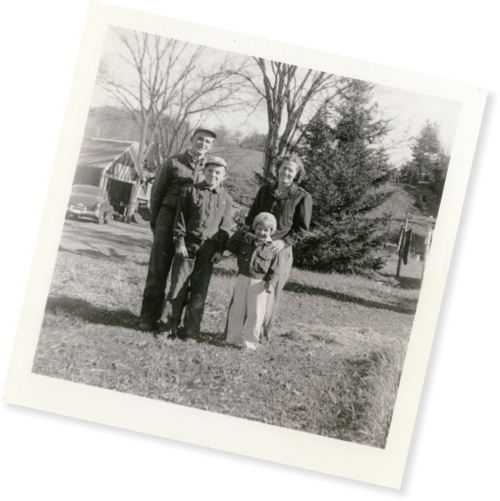
t had been a long day working with my leadership clients. Heading into my final coaching session, I knew it would be a challenging one for both myself and my client. SARS-CoV-2, colloquially known as the coronavirus, was in the process of reshaping our economic, social and wellness landscape. As an International Coaching Federation credentialed coach focusing on leadership and organizational development, I was seeing the stress of the event in all of my clients. I was also feeling it myself as the husband of a public health professional, the father of two school-age boys on “extended break,” and the owner of a small business under its own form of threat from the rapidly changing economic climate. My clients stress levels had moved to “11” and my own was not far off. Before I could invest in the resiliency of that final client for the day, I knew there was something I needed to do – I needed to call my mother.
My mom and dad are in their 70s and live four time zones to the east of my family. They’d just completed a long journey home to shelter from the coronavirus pandemic. I dialed the family home with the expectation of investing in their resiliency: checking in on them emotionally, talking with them about their plans, and letting them know that our family was thinking of them. As children, our parents are a much-needed source of resiliency, buffering us against some of the storms of life. As they age, we have the opportunity to become part of their circle of resources.
As my mother and I conversed, I asked her if she had seen anything like the coronavirus situation in her life. She rattled off several events, many of which I remembered, and then I said, “What about the polio epidemic of the 1950s?” Mom was a primary elementary school student at the time, and she immediately described being bussed 30 minutes to a building with a large auditorium where all the students lined up to receive their polio vaccination. “I remember the exact spot where they gave me the injection, right in my leg,” she exclaimed. She then continued, “There’s a more important story about the polio epidemic. As you know, your grandmother Phyllis was a nurse, and very late one night the telephone rang at your grandparents’ dairy farm. There was a patient in Rutland, Vermont, who needed an iron lung, and there was an iron lung in Hartford, Vermont. The patient had no way to travel to the area, so the iron lung needed to be transported to the patient.”
The hospital knew that my grandparents’ working farm would have a truck capable of moving the iron lung. I listened intently as my mother described how her parents bundled her and her brother into a farm truck. Despite having worked a full day on the farm and at the hospital, they set out on a multi-hour midnight trip over windy mountain roads, first to the hospital to load the iron lung and then to the patient who needed that equipment to stay alive.
Our call eventually complete, I felt suddenly refreshed. My mother had invested in my resiliency yet again. Her story of my grandparents’ actions during a time of epidemic resonated so clearly with me in this moment. I now see a line from my beloved grandparents to the work of my wife trying to find enough ventilators to support critically ill coronavirus patients, and to my own work to support leaders as they respond in this time of crisis. My mother didn’t know of her investment in my resiliency, but I’m sure that my final client of the day benefited from my renewed energy. Days later, Mom’s story is still renewing my resiliency like the sun coming up each day and recharging a plant.
As leaders, our resiliency can be tested at any time, but it is most likely to be in danger, when the situation is highly uncertain, threatening and extended. Neuroscience research consistently shows that we make poorer decisions when we feel threatened, tired and unsure of our surroundings (i.e., when our resiliency is lower) and that long-term stress has long-term consequences on decision making. In any time of challenge, we need to remember to invest in and renew our resiliency on a regular basis. As I work through the crisis with my client, the following techniques are working for them and for me:
On a personal level, starting every meeting like this is an easy way for me to build a gratitude practice into my own day, and I experience a similar increase in energy and focus while experiencing a reduction in overall stress. This simple exercise is particularly powerful in groups when members express gratitude for their teammates.
A beautiful aspect of gratitude is its durability. My mother gifted me her memory of a midnight ride with my grandmother to deliver a life-saving iron lung. The gratitude I feel for that gift is something that will fortify my resilience every time I remember the gift.
1. Nutrition
There’s an increasing body of research which shows that good nutrition, particularly a diet high in good fats and antioxidants, benefits the immune system and your brain. A healthy immune system and brain are keys to staying resilient over the long run.
2. Exercise
Regular exercise has a protective effect on the brain by increasing the availability of protective chemicals. These chemicals make your brain more resilient and effectively increase the strength and durability of the higher-order portion of your brain involved in decision-making.
3. Training
In this case, training refers to brain training through a mindfulness or meditation practice. Mindful states, including meditation and prayer, have been shown to lower rates of burnout, depression and anxiety, while increasing sleep quality and life satisfaction. I admit to being relatively new to meditation, but in my experience, it works wonders to reduce anxiety.
4. Sleep
Most adults need seven to eight hours of sleep each night, and most Americans don’t meet that standard. When we get quality sleep of sufficient duration, it gives our brain time to enter what is called REM sleep. In REM sleep, our brain filters, sorts and decodes much of the information that it collected during the day. Impaired REM sleep, particularly over the long run, has a significant negative effect on our ability to manage stress.
Basically, your grandmother or wise aunt had it right: eat right, exercise, be mindful and get your sleep.
We will all face times in our lives which challenge us and are more akin to running a marathon than making a sprint. We may face these challenges collectively or individually, but they will arise. When they do, we can make sure that we can sustain our pace and complete the marathon by regularly renewing our resiliency and the resiliency of others.
